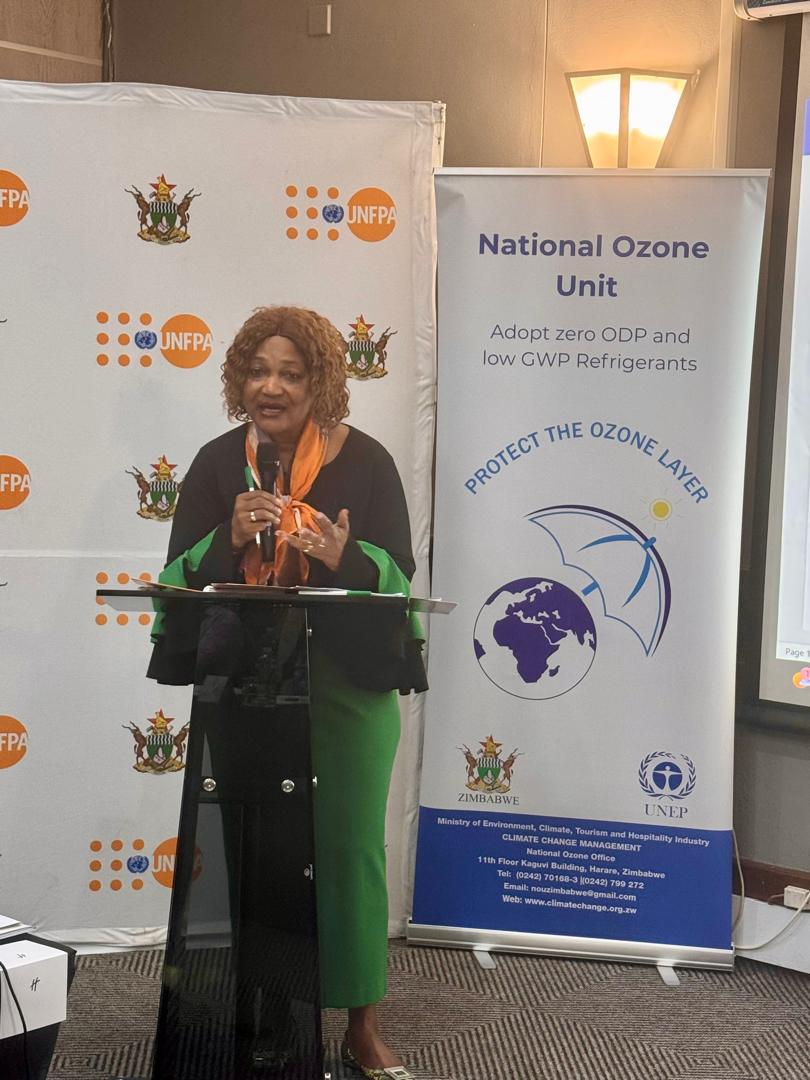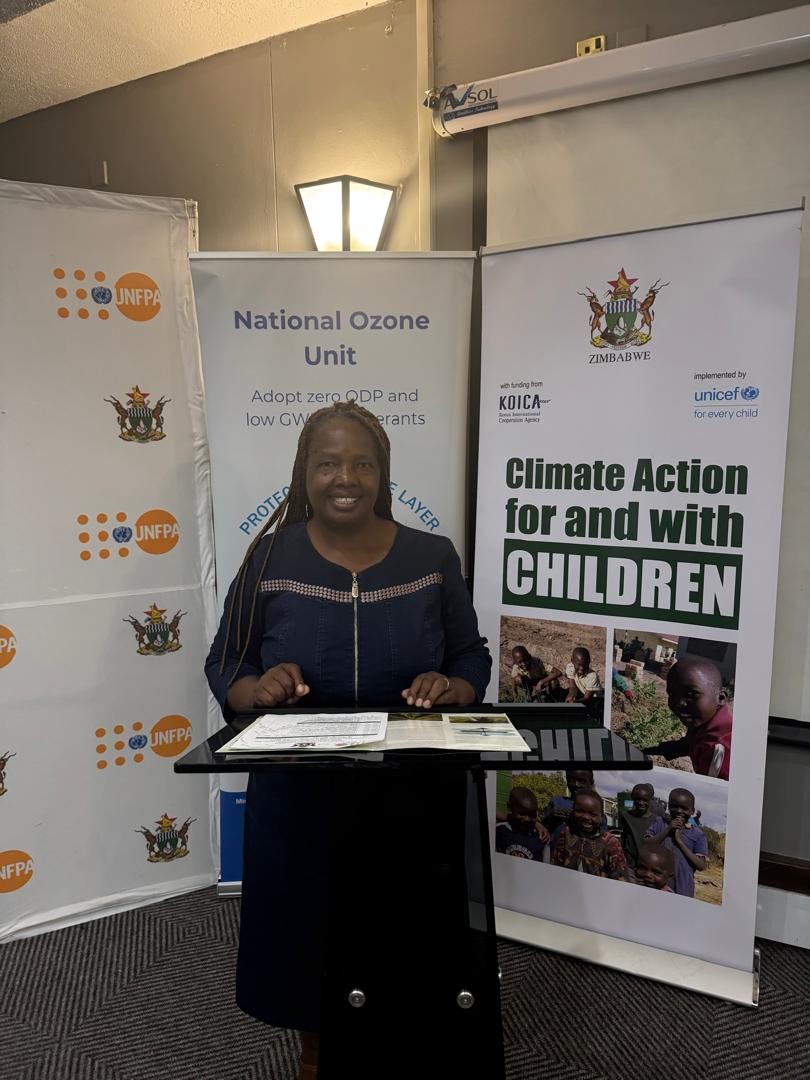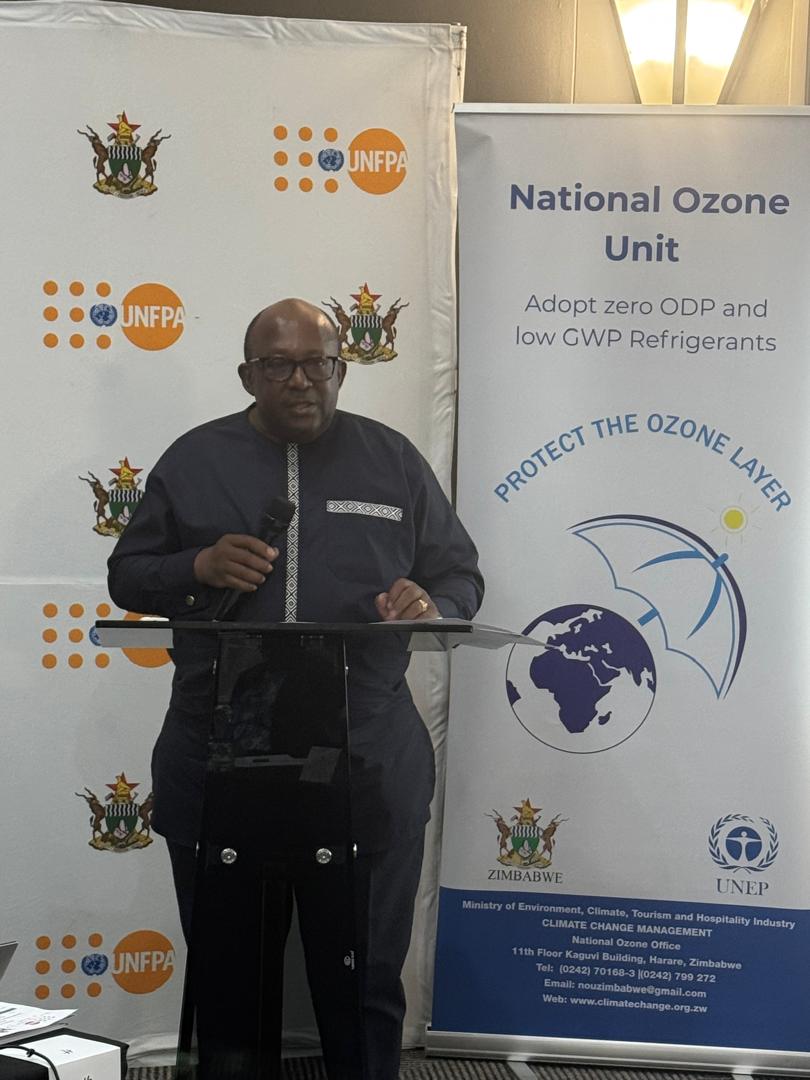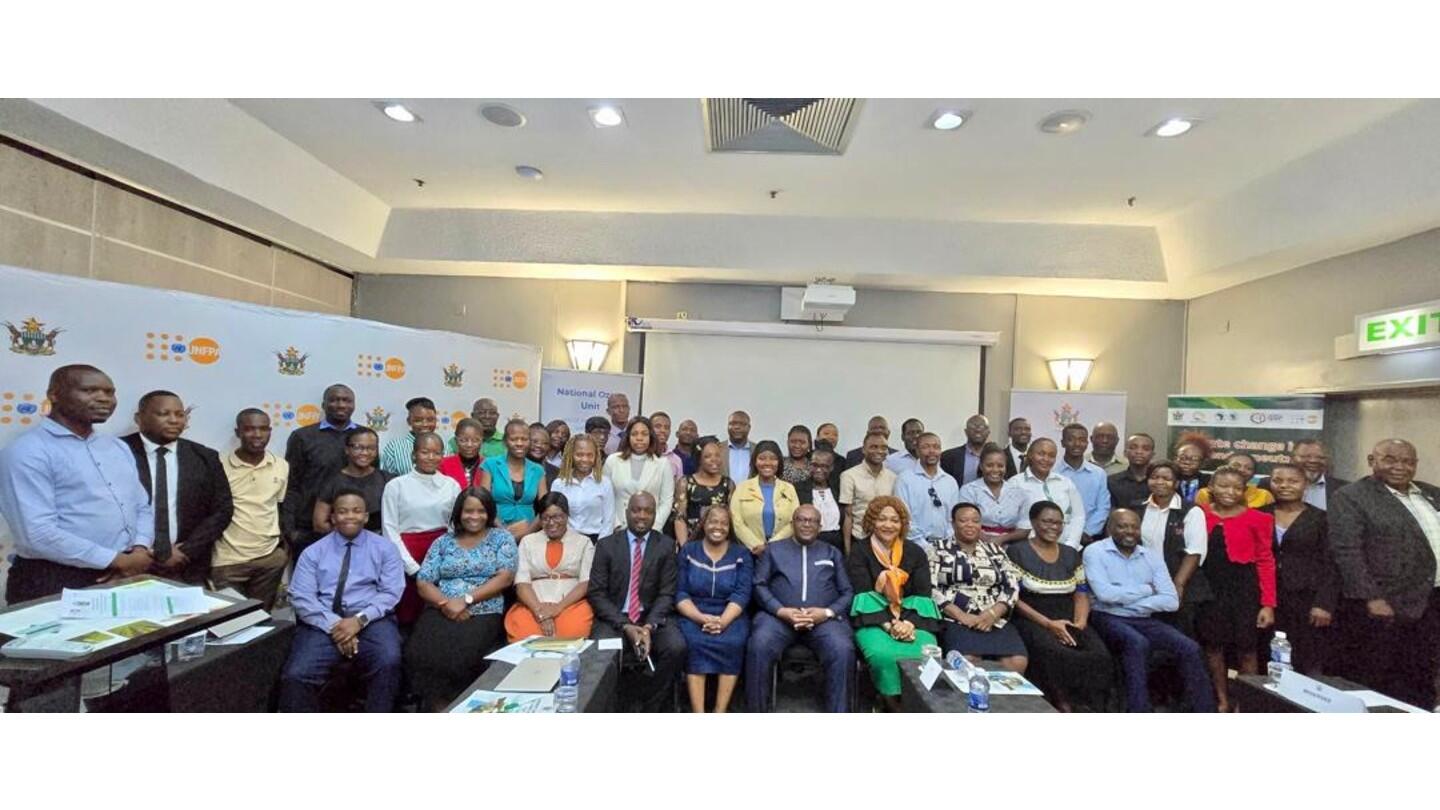Harare, 25 March 2025 – The Ministry of Environment, Climate, and Wildlife together with partners - the United Nations Population Fund (UNFPA) and the United Nations Children’s Fund (UNICEF) today convened a Climate Change Mainstreaming Sensitisation Workshop aimed at equipping ministry staff with the knowledge and tools necessary to integrate climate action into their work.
Delivering remarks at the workshop, UNFPA Country Representative Ms. Miranda Tabifor underscored the urgency of addressing climate change as a threat to sustainable development and gender equality. Climate change disrupts livelihoods, increases food insecurity, and exacerbates health risks, particularly for women and girls.

"Climate change is not gender-neutral, it disproportionately affects women, girls, and marginalized communities. If we do not integrate gender equality and sexual and reproductive health into climate adaptation efforts, we risk deepening existing inequalities. UNFPA Zimbabwe is committed to ensuring that climate policies protect and empower the most vulnerable, because a resilient future must include everyone."
The Human Impact of Climate Change
Climate change is not just an environmental issue; it is a humanitarian and developmental challenge with far-reaching consequences for marginalized groups. These climate-induced challenges heighten the risks of gender-based violence, early marriage, and limited access to healthcare, particularly for pregnant women and breastfeeding mothers.
Furthermore, climate change exacerbates existing barriers to essential services such as clean water, sanitation, and healthcare. In Zimbabwe and beyond, economic hardship caused by climate shocks has been linked to rising rates of child marriage as families seek economic security through traditional practices like kuzvarira.
“Tackling climate change requires a multi-sectoral approach, one that integrates climate adaptation into education, health, water, sanitation, and social protection systems. The future of our children depends on our ability to build climate-resilient communities, strengthen our policies, and invest in sustainable solutions,” said Egline Tawuya, UNICEF Programme Specialist in her speech read on behalf of Chief of Water and Sanitation Mr Carlos Vasquez.

UNFPA’s Commitment to Transformative Action
UNFPA has aligned its work with the International Conference on Population and Development (ICPD) Programme of Action, reinforced by commitments from the Nairobi Summit on ICPD25. Globally, UNFPA aims to achieve three transformative results by 2030, with an additional priority in the East and Southern Africa (ESA) region:
- Ending preventable maternal deaths.
- Ending unmet need for family planning.
- Ending gender-based violence and harmful practices.
- Ending new HIV infections in the ESA region.
Climate change threatens the realization of these goals. Without inclusive and gender-responsive climate policies, the progress made in sexual and reproductive health and rights (SRHR) may be reversed, further marginalizing women and young people.
Integrating Gender in Climate Change Policies
Recognizing the intersection of climate change, gender equality, and health, UNFPA advocates for policies and actions that center on:
- Healthy, empowered populations: Ensuring that SRHR and gender equality are integrated into climate adaptation efforts.
- Climate-resilient health systems: Strengthening healthcare infrastructure to respond to climate-related health challenges.
- Disaster preparedness and emergency response: Addressing the needs of displaced populations, particularly in preventing gender-based violence and ensuring access to SRHR services.
- Data-driven climate action: Utilizing disaggregated data to inform climate policies that reflect the realities of vulnerable populations.
UNFPA commended the Government of Zimbabwe for its commitment to gender-sensitive climate policies, as reflected in the National Gender Climate Change Action Plan.
"Over the years Zimbabwe has been experiencing increased frequency and magnitude of droughts, prolonged mid-season dry spells, heatwaves, violent storms and tropical cyclone activity. These extreme weather events are negatively impacting water, agriculture, health, forestry and biodiversity, infrastructure, human settlement and tourism sectors. Urgent action is critical to safeguard our communities & economy," said Permanent Secretary in the Ministry of Environment, Ambassador T Chifamba.

A Call for Collaboration
The fight against climate change requires collective action across all sectors. UNFPA Zimbabwe remains committed to working alongside the government, civil society, and development partners to ensure that climate adaptation strategies prioritize the health, safety, and rights of women and young people.


